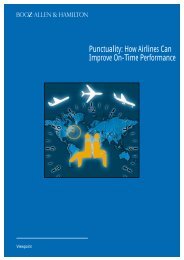The sentence
The sentence
The sentence
You also want an ePaper? Increase the reach of your titles
YUMPU automatically turns print PDFs into web optimized ePapers that Google loves.
<strong>The</strong> passive and the causative<br />
A. General information about form<br />
Basic forms of the passive<br />
1. In the active voice, the subject of the verb is the person or thing that does the action:<br />
John burnt the dinner last night.<br />
In the passive voice, the action is done to the subject: <strong>The</strong> dinner was burnt last night.<br />
2. We form the passive with a suitable form of be + past participle. Only verbs which take an<br />
object (transitive verbs) can go into the passive:<br />
<strong>The</strong> dinner was burnt. (But not *<strong>The</strong> plane was arrived.*)<br />
3. Basic tense forms are a tense of be + past participle:<br />
Present: he writes → it is written<br />
Past: he wrote → it was written<br />
Present/past perfect: he has/had written → it has/had been written<br />
4. Basic modal forms are: modal + be/have been + past participle:<br />
will: he will write → it will be written<br />
may: he may write → it may be written<br />
may have: he may have written → it may have been written, etc.<br />
5. Infinitive: to be/to have been + past participle:<br />
he is/was to write → it is to be written/it was to have written<br />
<strong>The</strong> passive with progressive forms: ‘She is being interviewed’<br />
Only the present and past progressive are common in the passive. We form the passive<br />
with the progressive form of be (am/is/are/was/were being) + a past participle:<br />
Present progressive: <strong>The</strong>y are interviewing her now. → She is being interviewed now.<br />
Past progressive: <strong>The</strong>y were interviewing her here. → She was being interviewed<br />
here.<br />
B. Uses of the passive<br />
Uses of the passive<br />
1. <strong>The</strong> passive is not just a different form of the active. It has its own uses and is very<br />
common in English. It would be hard to think of the active forms of <strong>sentence</strong>s like:<br />
Rome wasn’t built in a day. <strong>The</strong> origin of the universe will never be explained.<br />
2. We use the passive mainly in three ways:<br />
- when we don’t want to take responsibility for something:<br />
<strong>The</strong> matter will be dealt with soon. (We don’t know or want to say who’ll deal with it.)<br />
- when we want to focus on a happening, not who or what did it:<br />
Our roof was damaged in last night’s storm. (We’re concerned about the roof.)<br />
- when we want to avoid ‘vague subjects’ like one, someone, they, etc.:<br />
<strong>The</strong> form has to be signed. (Not *Someone/One has to sign the form.*)<br />
English spoken. (Not *One speaks English*) Shoes repaired. (Not *One repairs shoes*)<br />
79




